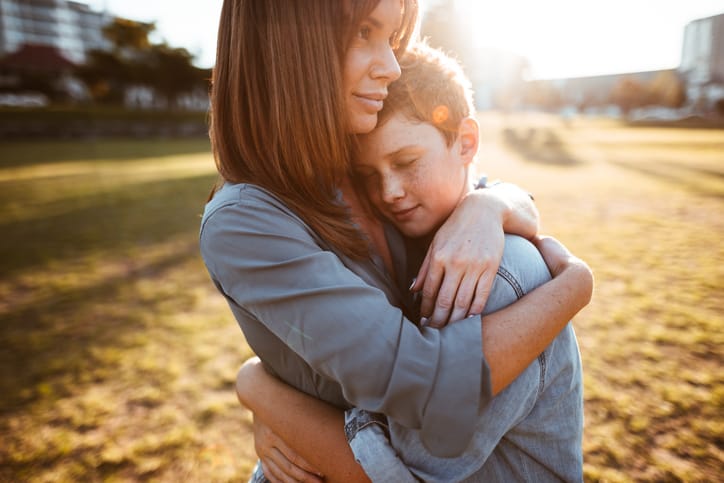I was given the opportunity to adopt a teenager that I mentored and I didn’t hesitate to say yes. I was excited to open my home and life to a child that I love and who needed guidance and stability while also fulfilling my desire to be a parent. What I didn’t prepare for was the pain I’d cause my new son due to my lack of knowledge and high expectations. Maybe this journey wasn’t for me.
- I’m new to the game. This adoption is my first rendezvous into parenthood. It’s a Herculean feat to dive into the teen years headfirst in itself. With the extra stress of adoption, I’m in over my head. I have the best of intentions, yet my lack of parenting experience negatively affects my son during a time when he needs more and better.
- I knew things, but I also didn’t. I truly thought being an adoptive parent was a slam dunk for me. I have a degree in social work and experience in foster care. I even have a little brother with Big Brothers, Big Sisters. But I now know that you aren’t really in it until you are in it. Every child is unique and different and comes with their own set of challenges and expectations. Until you have one in your home and are fully responsible for them, you don’t know anything. Children and adoptions are not created equal.
- I was expecting more than what I got. I went in placing myself in the role of Mom and my husband as Dad. My son was my son. What I see now is that some children don’t view the situation quite like that, especially teenagers. Whatever route you take, children make up their own minds as to who their family and inner circle are. This isn’t because you did anything wrong, it’s because of the bonds that have been forming for longer than the time of your relationship. It can also be due to a strong desire to know where they come from and to be a part of it. My expectations put my relationship with my son on rocky ground.
- I can’t fix the hurt. The pain that my son experiences is immense. Nothing can prepare a person for the deep feeling of loss that they go through when they legally separate from the only family they really know. This pain is very difficult to overcome and bleeds into many different aspects of life and relationships. This is a difficult concept to grasp for those who aren’t living it, which makes the child feel completely alone.
- I have a different culture and traditions. Children who are adopted into a family from another culture experience an additional loss. Those who find themselves with little exposure to what they align so closely with can experience an identity crisis because they don’t have a clear idea of what group they belong to. They find themselves unsure whether or not they can be part of both. This can lead to lifelong issues and hostility.
- I’m not always what he wants. Open adoptions benefit the child greatly in the long run. Knowing their history and those that they share DNA with is critical to a child’s well-being. However, going back and forth between two separate families is very difficult. This can lead the child to want to choose who their loyalty belongs to, creating tension on both sides.
- I mistakenly watched The Blindside. That movie is a high-level highlight reel of adoption and paints an unrealistic picture. I felt like a failure watching this because my relationship is unlike that of Michael Oher and Leigh Anne Touhy. In actuality, what I have is more realistic in the realm of teenager adoption than what they portray. Previous to my experience, movies like this are what I based my vision of adoption on.
- I don’t hold the stronger bond. The book Primal Wound by Nancy Verrier speaks of the physiological bond that occurs between the child and birth mother. Even if the child and mother never lay eyes on one another, the bond still exists. This can lead to lifelong abandonment issues due to the severing of the first relationship the child knew. Had I earlier reconciled that this wasn’t something I could overcome, I would be a more confident and peaceful presence in my son’s life now.
- There’s more than one way to be an influence. Although eager to parent, in hindsight, I think that the best situation for my son would have been to continue the role of mentor, just in a stronger way. I should have been a mentor that has an open door policy with a bed prepared for last-minute sleepovers. A mentor with an ear always ready to listen. This would provide a safety net with stability and love without the titles and legalities hanging over us. There are circumstances where this isn’t possible, but for us, it was an option that could have been further explored.
- I should have just loved. In many situations, adoption is the best plan. Many, many children want a stable and secure home and doting parents right by their side. In addition, there are women and men who aren’t in a place to parent a child. Regardless of the course of action, one must fully prepare themselves for what they’re about to undertake. All preconceived notions need to disappear so that the experience can be about one thing only: love. I wish I dismissed the image that I had in my head of what we were supposed to be and just put my energy into love. If I had, my son and I could have gained much more in our time together than what we were able to.



